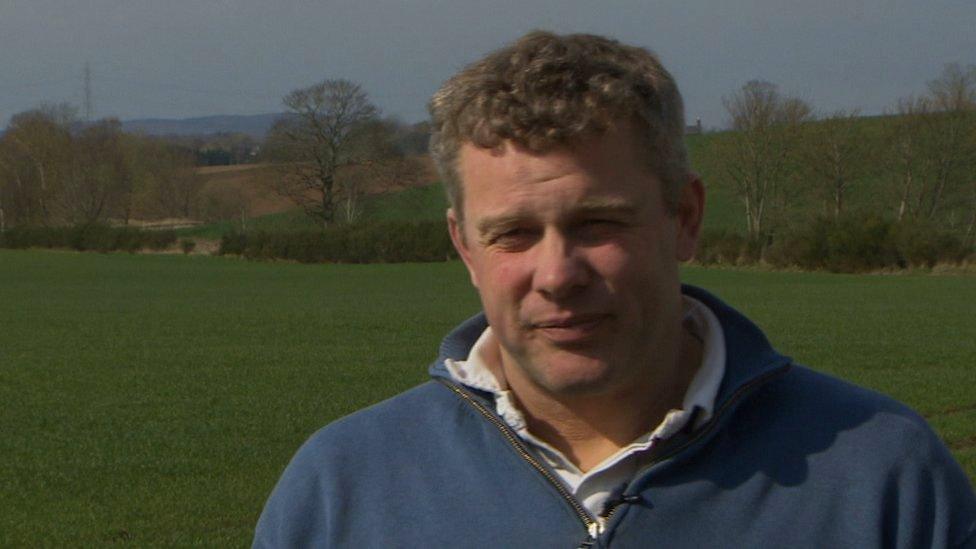Beavers given protected status in Scotland
- Published
- comments
Scottish beavers protected in law
Wildlife organisations have welcomed new legislation making beavers a protected species in Scotland.
It is now illegal to kill beavers or destroy established dams and lodges without a licence.
The Scottish Wildlife Trust said legal protection for beavers was "an important step" to enable the species to "expand its range."
Farming leaders have raised concerns about the damage caused to agricultural land from beavers' dam-building.
The animals were reintroduced to Scotland's waterways a decade ago.
There are currently about 450 beavers in Scotland, in Tayside and mid-Argyll.
'Ecosystem engineers'
Scottish Wildlife Trust chief executive Jo Pike said beavers were "unrivalled as ecosystem engineers."
She said: "Granting beavers protected status is an important milestone for the return of the species to Scotland's lochs and rivers.
"It follows decades of work by countless organisations and individuals to demonstrate the positive impacts that beavers can have.
Ms Pike said the trust accepted that land managers must have the ability to deal with "localised negative impacts" caused by beavers.
She said: "However, it is equally important to ensure lethal control is only used as a last resort, and this does not threaten the successful spread of beavers into other areas of Scotland."

Farmer Adrian Ivory said beaver dams cost his business thousands of pounds every year
Adrian Ivory is farm manager at Strathisla Farms in Perthshire. Last year beavers set up home close to his wheat field.
He told the BBC that the beavers damming on a nearby burn resulted in his crop being destroyed.
He said: "The big problem for us with the dams is that it costs me as a business £4,000-£5,000 a year, pulling dams out of watercourses, trying to sort banks out.
"These are problems that we shouldn't really be having to deal with.
"We are trying to produce quality food for the population to eat and this is just causing real problems and a cost to my business."